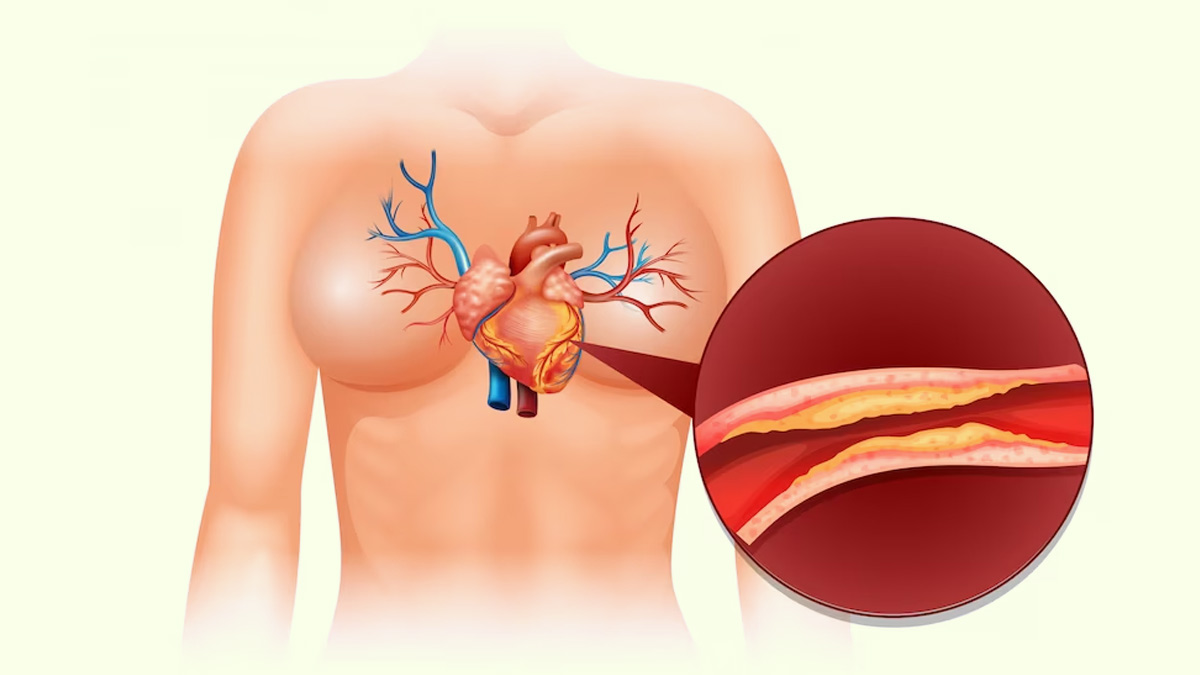
The term "plaque in your arteries" refers to the buildup of fatty deposits, cholesterol, and other substances on the walls of the arteries, a condition known as atherosclerosis. Atherosclerosis can lead to narrowing and hardening of the arteries, which increases the risk of heart attack, stroke, and other cardiovascular problems.
Table of Content:-
While no single nutrient can "remove" plaque from arteries, certain dietary choices can help prevent or slow down the progression of atherosclerosis and promote heart health.
“In atherosclerosis, the obstruction can range from completely asymptomatic in mild cases to an abrupt heart attack or stroke in others. If you suffer a lot of chest pain while walking or exercising, it could be an indication of atherosclerosis. So, when the severity of obstruction in atherosclerosis in the main arteries exceeds 70%, the heart begins to suffer. It can also induce chest discomfort during exercising or walking, as well as in stressful situations,” said Dr Viveka Kumar, Principal Director and Chief of Cath Labs (Pan Max) of Cardiac Sciences, Max Super Speciality Hospital, Saket. Here are some nutrients and dietary strategies that may be beneficial:
1. Omega-3 Fatty Acids
According to MayoClinic, omega-3 fatty acids, found in fatty fish like salmon, mackerel, and sardines, as well as in flaxseeds, chia seeds, and walnuts, have anti-inflammatory properties and are beneficial for heart health. They can help lower triglyceride levels, reduce inflammation, and decrease the risk of plaque buildup in the arteries.

Also read: Oral health: Basic Dental Habits To Deal With Plague
2. Soluble Fibre
Soluble fibre, found in foods like oats, beans, lentils, fruits, and vegetables, can help lower cholesterol levels by binding to cholesterol in the digestive tract and removing it from the body.
Consuming foods high in soluble fibre regularly can help reduce LDL (bad) cholesterol levels and prevent plaque buildup in the arteries.
3. Antioxidants
Antioxidants, such as vitamins C and E, beta-carotene, and selenium, help protect the body from oxidative stress and inflammation, which are involved in the development of atherosclerosis.
Foods rich in antioxidants include berries, citrus fruits, nuts, seeds, and colourful vegetables like spinach, kale, and bell peppers.
4. Plant Sterols and Stanols
According to ABC Cardio, plant sterols and stanols are compounds found naturally in plants that have been shown to lower LDL cholesterol levels. They work by blocking the absorption of cholesterol in the intestines, reducing the amount of cholesterol that enters the bloodstream and contributes to plaque formation.
Foods fortified with plant sterols and stanols, such as certain margarines, yoghourts, and orange juices, can help lower cholesterol levels when consumed regularly as part of a heart-healthy diet.
5. Healthy Fats
Replacing saturated and trans fats with healthier fats like monounsaturated and polyunsaturated fats can help improve cholesterol levels and reduce the risk of plaque buildup in the arteries. Sources of healthy fats include olive oil, avocados, nuts, seeds, and fatty fish.
6. Garlic
Garlic contains compounds that may help lower cholesterol levels and reduce the risk of atherosclerosis. Incorporating garlic into your diet regularly, either raw or cooked, may have cardiovascular benefits.

Also read: Oral health: Basic Dental Habits To Deal With Plague
7. Green Tea
According to the National Library of Medicine, green tea is rich in catechins, powerful antioxidants that have been shown to improve cholesterol levels and reduce the risk of heart disease. Drinking green tea regularly as part of a balanced diet may help prevent plaque buildup in the arteries.
No single nutrient can "remove" plaque from arteries, adopting a heart-healthy diet that includes a variety of nutrient-rich foods can help prevent or slow down the progression of atherosclerosis and promote overall cardiovascular health. Also, maintaining a healthy weight, staying physically active, managing stress, and avoiding smoking are important lifestyle factors for reducing the risk of plaque buildup and heart disease. Always consult with a healthcare professional before making significant changes to your diet or lifestyle, especially if you have existing health conditions or concerns.
Also watch this video
How we keep this article up to date:
We work with experts and keep a close eye on the latest in health and wellness. Whenever there is a new research or helpful information, we update our articles with accurate and useful advice.
Current Version